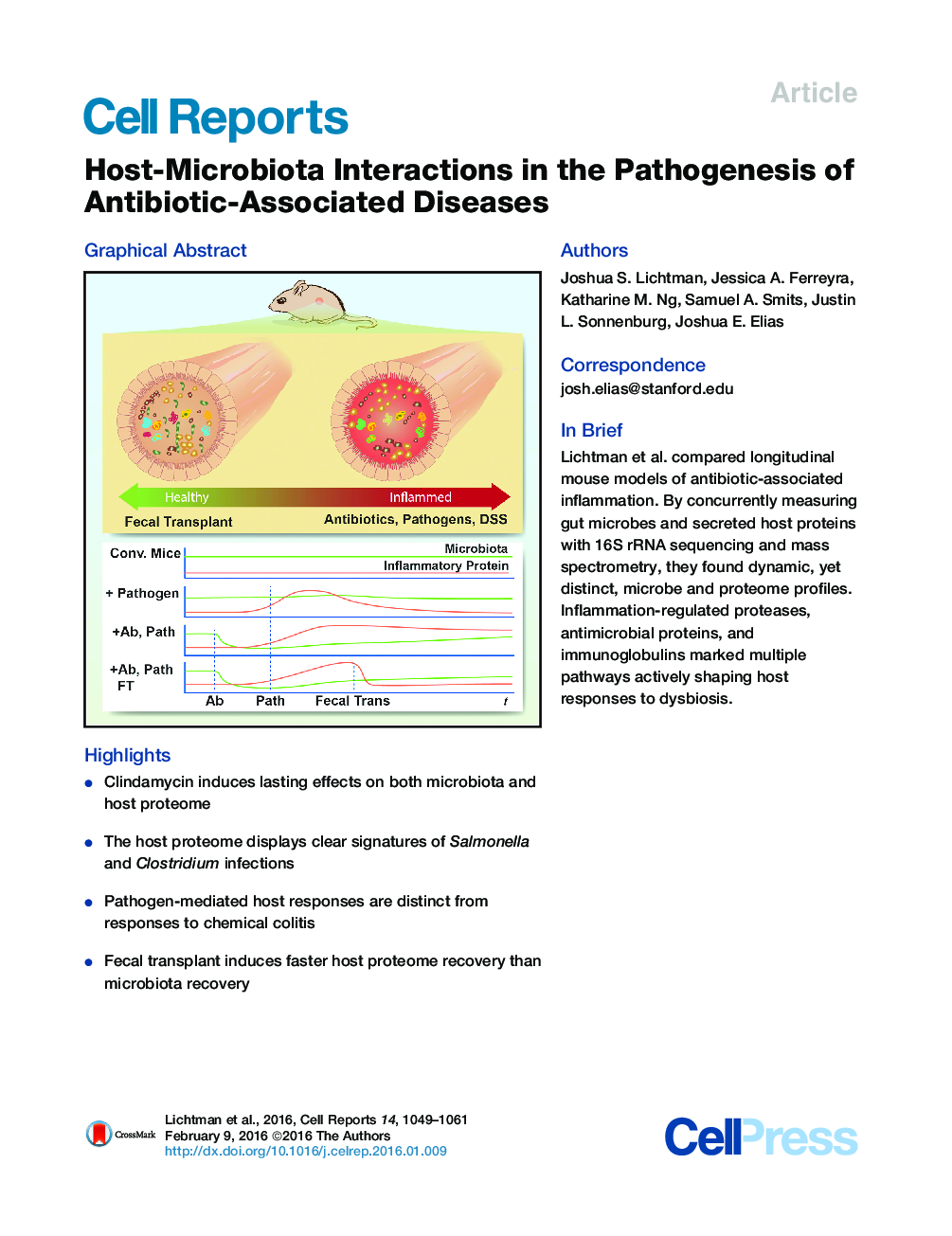| Article ID | Journal | Published Year | Pages | File Type |
|---|---|---|---|---|
| 2040522 | Cell Reports | 2016 | 13 Pages |
•Clindamycin induces lasting effects on both microbiota and host proteome•The host proteome displays clear signatures of Salmonella and Clostridium infections•Pathogen-mediated host responses are distinct from responses to chemical colitis•Fecal transplant induces faster host proteome recovery than microbiota recovery
SummaryImproved understanding of the interplay between host and microbes stands to illuminate new avenues for disease diagnosis, treatment, and prevention. Here, we provide a high-resolution view of the dynamics between host and gut microbiota during antibiotic-induced intestinal microbiota depletion, opportunistic Salmonella typhimurium and Clostridium difficile pathogenesis, and recovery from these perturbed states in a mouse model. Host-centric proteome and microbial community profiles provide a nuanced longitudinal view, revealing the interdependence between host and microbiota in evolving dysbioses. Time- and condition-specific molecular and microbial signatures are evident and clearly distinguished from pathogen-independent inflammatory fingerprints. Our data reveal that mice recovering from antibiotic treatment or C. difficile infection retain lingering signatures of inflammation, despite compositional normalization of the microbiota, and host responses could be rapidly and durably relieved through fecal transplant. These experiments demonstrate insights that emerge from the combination of these orthogonal, untargeted approaches to the gastrointestinal ecosystem.
Graphical AbstractFigure optionsDownload full-size imageDownload as PowerPoint slide
